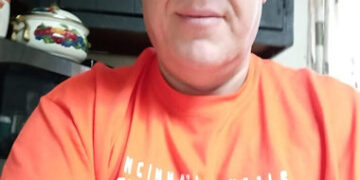Filtration is a pivotal process in winemaking that ensures each bottle delivers the finest quality and taste. It preserves the wine’s characteristics while removing impurities that could negatively impact the flavor and stability. As a wine connoisseur or winemaker, understanding custom filtration solutions can significantly elevate your appreciation for the craft. In this read, we briefly outline an overview of custom filtration in the wine industry, making note of its role, advantages, and how storage can affect the process.
The Role of Filtration in Wine Production
Filtration affects the quality and stability of wine by removing unwanted particles and microorganisms. This process extends the wine’s shelf life and enhances its clarity and flavor. Custom filtration solutions play a crucial role here, as they allow winemakers to tailor the filtration process according to the specific needs of different wine varieties.
Proper filtration ensures wines remain consistent in taste and quality, meeting the high standards expected by connoisseurs and casual drinkers. By eliminating potential spoilage organisms, filtration safeguards the wine from defects that could develop post-bottling. Ultimately, this process contributes to the final product’s overall excellence.
Custom Filtration Techniques in the Wine Industry
Winemakers employ several filtration methods, each serving a unique purpose. Crossflow filtration is popular for its efficiency and minimal impact on the wine’s flavor profile. This method uses a semi-permeable membrane to separate unwanted particles without stripping the wine of its essential qualities.
Diatomaceous earth filtration, another commonly used technique, involves using a natural, porous material to filter out impurities. This method is effective for wines that require a high level of clarity.
Membrane filtration, on the other hand, provides fine filtration and is best for microbial stabilization. This ensures the wine remains pristine and free from spoilage organisms.
Factors To Consider When Choosing a Filtration Solution
Selecting the right filtration method is essential for achieving the desired wine characteristics and outcomes. The type of wine, its stage in the production process, and the winemaker’s specific goals all influence this decision. For instance, white wines might benefit more from certain filtration methods than red wines due to their different compositions and desired flavors.
It’s also important to consider the wine’s texture and mouthfeel when choosing a custom filtration solution. Over-filtration can strip wines of their complexity, while under-filtration may leave them susceptible to spoilage.
Storing Wine Properly: A Complementary Practice
In addition to filtration, understanding the proper way to store wine is crucial for maintaining its quality over time. Temperature, humidity, and light control play significant roles in preserving the wine’s flavor and preventing oxidation. Ideal storage conditions complement custom filtration solutions by protecting the wine from environmental factors that could degrade its quality.
Make sure to store wine at a consistent temperature, typically between 55- and 58-degrees Fahrenheit, as this maintains its stability. Proper humidity levels, around 70 percent, prevent the cork from drying out and allow the wine to age gracefully. Keeping wines away from direct light further protects them from harmful UV rays that may alter their flavor.
Custom filtration in the wine industry is vital for producing high-quality, consistent, and enjoyable wines. By tailoring the filtration process to suit different wine varieties, winemakers can achieve the desired characteristics and ensure the wine’s stability and clarity.




















































































